I read this article in the TOI - Letters to Editor section some weeks ago, and since then it's been all over me. Dunno why, but I always go back to reading this article in the most despondent of times I feel. It jeers me up and makes me realize....Damn...I've pulled well so far haven't I...then why can't I just continue doing it !!!! Today, if there's one thing I thank God for after this entire saga, it's for a simple reason. He gave me the time, a lot of time. He prepared me for this eventuality, and he atleast alllowed me to say, "Good-bye Maaaa, I loved you...."
For those who've felt the worst possible heartache any human can go through, read on...for here is something that you will relate to, and something you will carry all your life.
====================================================================================
One of the major challenges we face as a palliative care team looking after people with advanced cancer in their homes is helping children prepare for the death of a parent. Nothing is more difficult and more necessary. When it comes to children, there is a shared belief across the board that they should be spared bad news. Contrary to what we adults may like to believe, children hear and see everything. If ignored, children end up causing themselves unnecessary harm, as they tend to imagine the worst. This often includes blaming themselves for the ill health and death of a parent.
Children need explanation and information just like anyone else. They are keen observers. We may think that we are not communicating with them when we do not speak to them, but we are, in fact, doing so all the time. Our body language and expressions speak for themselves. If we shut children out from what is a momentous event in their lives we run the risk of scarring their psyches forever. This is especially so if the surviving parent does not have a loving relationship with the children or is so wrapped up in personal grief as to be unable to offer support. Such a parent may end up looking for support from children. Children grieve as much as adults do, even though they may not have the language to do so. Their actions speak loud and clear.
Children act up in school and at home when there is trouble close at hand. It is their way of expressing sadness and distress. We as parents, teachers and caregivers need to recognise the emotional turmoil behind these external acts and provide safe avenues for its expression and validation.
Losing a parent at any age is a tragic occurrence. It is traumatic when we are children and our universe revolves around our parents. Our lives are going to change in so many ways and yet no one wishes to prepare us for this or pay attention to our need to be considered part of the family. As adults we might wish to shield our children from the pain of death and separation, but this is a reality that they have to confront sooner or later. While we cannot spare them the pain, we can share it with them, and spare them the guilt of being unable to say their final goodbye to the parent who died.
Children, we are told, fear losing memories of the parent who has died. It is necessary to help them actualise their loss and grief and keep memories alive. This includes talking about the dead parent as often as possible. A family album is a great tool for this. In the West, parents prepare a memory box for their children full of personal knick-knacks that children can look at whenever they feel the need to do so. There are parents who sometimes choose to write letters to children they will never see growing up so that they may open them on special occasions in their lives such as graduation and marriage.
The idea is to help children heal themselves by continuing to keep the relationship with and the memories of the parent they have lost, rather than suppressing memories and holding on to pain and denial.
Support groups for bereaved children facilitate healing. Children hate to be different from their peers. Being the only child who has lost a parent in a classroom setting or in the school is a terrible burden for a child to carry. Meeting with peers who have faced a similar situation is therapeutic suddenly you are not the only one to have lost a parent.
One of the worst things you can do as a parent is lie to your child. If found out, you will lose their trust. It is also a sign that we do not respect our children. If we have a right to know, so do our children, albeit in a fashion that fits in with their level of comprehension. All too often, children know much more than we suspect or give them credit for. If we do not meet their need to know they will look elsewhere. It is better that we give them the information they crave in a loving, gentle and supportive way.
Death is more terrifying for a child than for us. They have fertile imaginations, which can run riot and cause them great anguish. There are children who believe that the parent will become a ghost after death, that a big black bird will pluck out the eyes of a dying parent. Talking to children to gauge their understanding of death is necessary as is the need to openly grieve in front of our children. If we do not cry in front of our children how will they know it is alright to express their sadness? They may grow up suppressing their feelings, unable to come to terms with their sense of loss.
We must share our happy and sad moments with our children if we want them to grow up as healthy and stable emotional beings. If we do not help our children handle death and bereavement we will be crippling them emotionally forever.
The writer is Ms. Harmala Gupta - President, Cansupport (An NGO working towards spreading cancer awareness). Website : http://www.cansupport.org





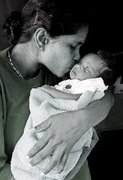




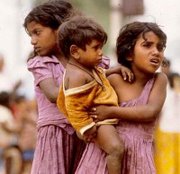

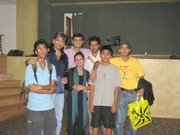



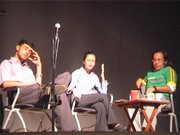
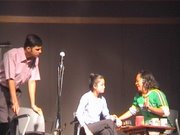


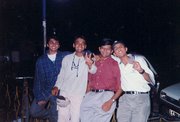










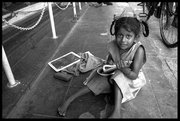










1 comment:
standardized formalism layout pasted helier tesol printout abcs practise policemen rcophth
lolikneri havaqatsu
Post a Comment